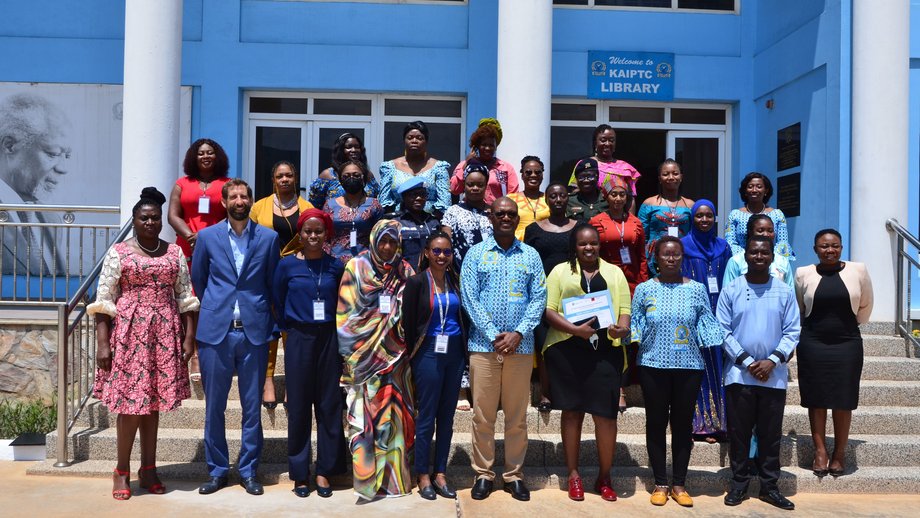In collaboration with the Women, Peace and Security Institute (WPSI) at the Kofi Annan International Peacekeeping Training Centre (KAIPTC), the GIZ Support Programme to the KAIPTC has been successfully implementing the Inspiring African Women Leaders in Peace and Security (IAWLPS) programme since 2019.
Despite all efforts to systematically integrate gender perspectives into peace and security discourse, policy and practice, the vast majority of actors in the (African) peace and security landscape continues to be male and the marginalization of women, girls and non-binary individuals remains an ongoing challenge. Incorporating women equally and fully in all activities of the peace and security sector, among others by increasing their numbers as civilian, police and military personnel in multi-dimensional Peace Support Operations, remains a goal which is still to be realised.
In collaboration with the Women, Peace and Security Institute (WPSI) at the Kofi Annan International Peacekeeping Training Centre (KAIPTC), the GIZ Support Programme to the KAIPTC has been successfully implementing the Inspiring African Women Leaders in Peace and Security (IAWLPS) programme since 2019 against this background.
The IAWLPS programme offers a comprehensive training programme for women mid-career professionals and leaders. Over a 1.5-years period, the programme provides participants with diverse opportunities to further their education, develop their professional (leadership) skills, and network with other women professionals and leaders. The objective is to improve their active and meaningful participation and leadership in the peace and security environment on the African continent.
The IAWLPS programme annually targets 15-20 mid-level female leaders from African countries who are already working in the peace and security sector and wish to further develop their leadership potential. The programme offers a wide range of virtual and in-house capacity building seminars as well as coaching, and networking opportunities with different thematic foci, all designed to enhance the leadership potential and skills of the participants. Another important component of the programme is a project that all participants have chosen specifically for the IAWLPS programme and through which they will work on leadership challenges. The project is a core element of the IAWLPS programme, as participants work on this project throughout their entire IAWLPS time.
Participants confirm that their participation in the programme has increased their skills and competencies as well as their self-confidence. The successful implementation of their IAWLPS projects and personal career plans, including promotions and/or new job offers, are just one indication of the positive effects of the programme. Lt. Col. Arabiatou Jarjue affirms:
The programme has improved my leadership skills and contributed significantly to my promotion as the first female national parade commander in the Republic of The Gambia
Through the IAWLPS programme, KAIPTC-WPSI and GIZ are making an important contribution to promoting gender equality and sustainable peace on the African continent. Within the framework of German development cooperation, the IAWLPS programme makes a distinct contribution to the implementation of the United Nations "Women, Peace and Security " agenda as well as to Germany’s Third National Action Plan for the Implementation of the Women, Peace and Security Agenda (2021-2024).
More information about the IAWLPS programme can be found here.
